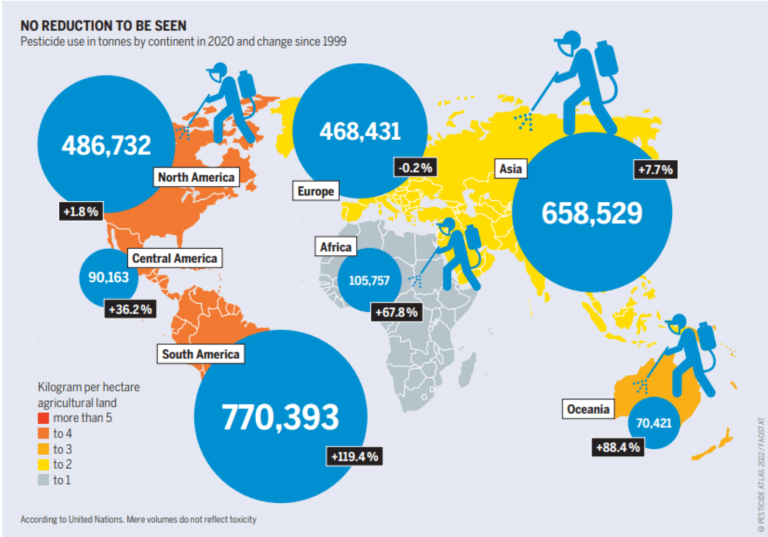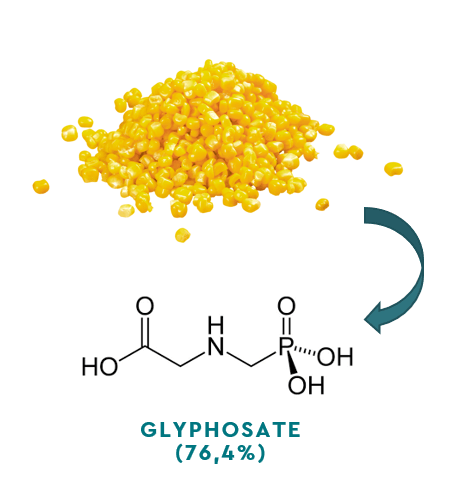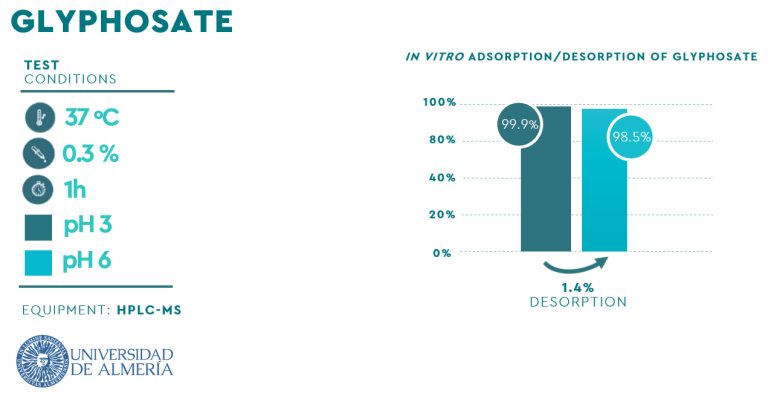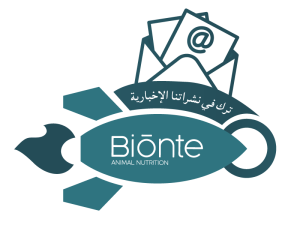The safety of plant and animal origin products intended for human consumption can be compromised by a number of risk factors, such as high concentrations of pesticide residues or mycotoxins.
Pesticides are often used in agriculture to control the growth of unwanted plant or animal species on crops. For example, herbicides are used to control invasive plants. Among these, glyphosate is the most widely used herbicide in agriculture, although its harmful effects on human health, safety and the environment have long been known.
Both pesticides and mycotoxins are extremely dangerous compounds and can induce toxic and allergic effects in animals and consumers (Akoto et al., 2015).
Despite the introduction of Maximum Residue Levels (MRL) of pesticides and mycotoxins in food and feed by the European Union (Regulation 396/2005 of the European Parliament and of the Council of 23rd February 2005), the use of pesticide is still on the rise (Figure 1). For all these reasons, the development of eco-friendly practices that protect the environment, animals and humans is one of the solutions that can be implemented to tackle this problem.
In the literature, there is evidence that natural and modified clay minerals can adsorb organic substances, such as polycationic modified clay minerals (bentonite), and also shows high adsorption against pesticides (Masini and Abate, 2021).

Figure 1. Amounts of pesticides used on the different continents in 2020 [source: Heinrich Böll Foundation, Berlin (Germany); Friends of the Earth (Spain); PAN Europe, Brussels (Belgium): Pesticide atlas.
BIŌNTE® QUIMITŌX® PLUS®: In vitro adsorption test to evaluate its ability to adsorb mycotoxins and pesticides
Our product BIŌNTE® QUIMITŌX® PLUS® presents a specific combination of phytogenic, mineral and organic components, specially selected to provide a triple effect: adsorption, bioprotection and post-biotic effect.
In order to evaluate the adsorption capacity against the most toxic compounds that threaten the safety of products destined for human consumption, such as mycotoxins and pesticides, an in vitro test was carried out in collaboration with the University of Almeria. A sample of maize that had been treated with glyphosate during its production cycle was used in this essay (Figure 2).

Figure 2. Glyphosate residues in the maize sample used in the essay.
The test simulated gastrointestinal tract conditions and its efficacy was determined at pH 3 (gastric conditions) and pH 6 (intestinal conditions). Results were determined by high-pressure liquid chromatography mass spectrometry.
As shown in Figure 3, BIŌNTE® QUIMITŌX® PLUS® showed excellent results in the adsorption of glyphosate with an average of 99.5% adsorption in the gastrointestinal tract.

Figure 3. Adsorption of BIŌNTE® QUIMITŌX® PLUS® at pH 3 and pH 6 of Glyphosate.
The results demonstrate that BIŌNTE® QUIMITŌX® PLUS® represents an effective product in reducing not only the concentration of mycotoxins, but also pesticides.
Conclusions
BIŌNTE® QUIMITŌX® PLUS® provides a natural and effective alternative in situations where animal health and food safety may be compromised.



